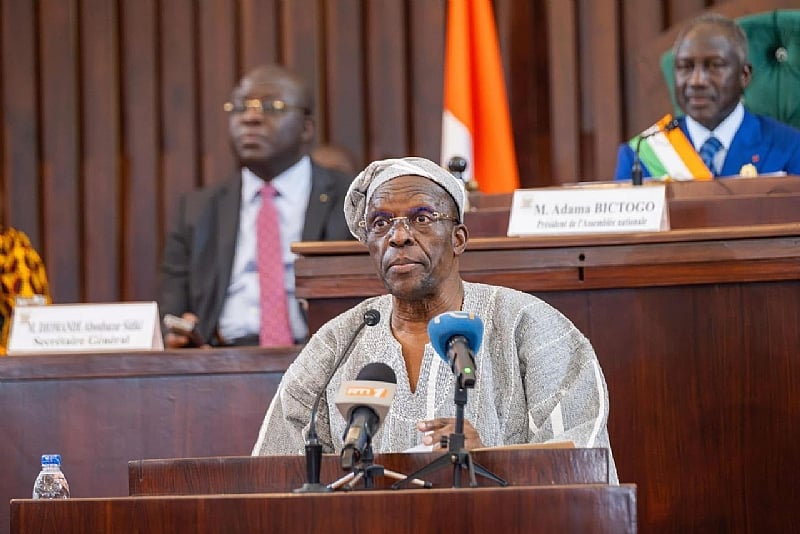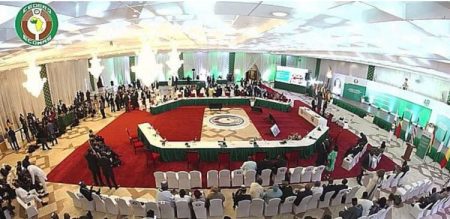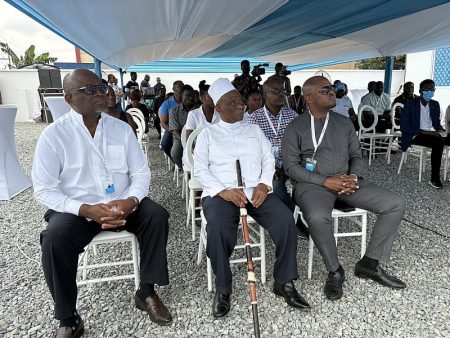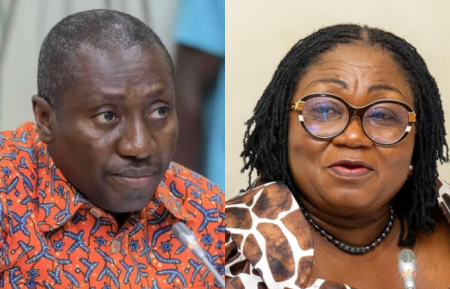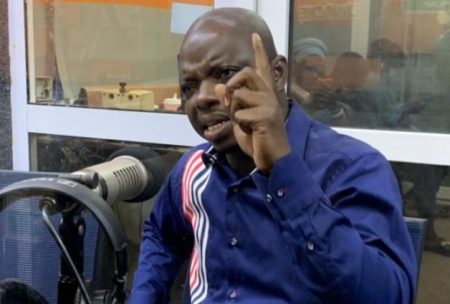The Ghanaian Parliament welcomed its newest member, Ewurabena Aubynn, representing the Ablekuma North constituency, in a swearing-in ceremony presided over by Speaker Alban Kingsford Sumana Bagbin. This event marked a significant milestone, restoring the Parliament to its full complement of 276 members and increasing female representation to 41. Speaker Bagbin celebrated Aubynn’s arrival as a blessing for both the legislative body and the nation’s democratic processes, emphasizing the importance of achieving full representation. The Ablekuma North seat had remained vacant for over six months following contested election results in 2024, highlighting the significance of Aubynn’s eventual victory.
Aubynn’s electoral victory, secured in a rerun election held on July 11th, concludes a protracted period of uncertainty surrounding the Ablekuma North constituency’s representation. Her win over the New Patriotic Party’s (NPP) Nana Akua Owusu Afriyie not only filled the vacant seat but also shifted the balance of power within Parliament, granting the National Democratic Congress (NDC) a two-thirds majority. This outcome carries significant weight in legislative proceedings and underscores the importance of every parliamentary seat in shaping the political landscape. The contentious nature of the original election and subsequent rerun highlights the fragility of democratic processes and the importance of ensuring fair and transparent elections.
The swearing-in ceremony, while a celebratory occasion for the NDC and a landmark moment for parliamentary representation, was also marked by political tensions. The NPP Minority caucus, protesting the Speaker’s refusal to allow them to make a statement, staged a walkout. This action underscores the deep-seated political divisions within the Ghanaian Parliament and foreshadows potential challenges in bipartisan cooperation moving forward. The NPP’s protest, while highlighting their dissatisfaction, also risks being perceived as undermining the democratic process and the significance of Aubynn’s election.
Ewurabena Aubynn’s entry into Parliament signifies more than just filling a vacant seat; it represents the culmination of a complex electoral process and a shift in the parliamentary power dynamic. Her victory consolidates the NDC’s two-thirds majority, potentially influencing legislative agendas and policy decisions. Moreover, her presence contributes to the growing number of women in Parliament, a positive step toward greater gender representation in Ghanaian politics. However, the NPP’s walkout casts a shadow over the proceedings, highlighting the ongoing political tensions and the challenges of fostering a collaborative legislative environment.
The Ablekuma North by-election and its aftermath provide a glimpse into the intricate workings of Ghanaian politics. The extended vacancy of the seat, the contested election results, and the eventual rerun highlight the importance of robust electoral systems and the need for clear dispute resolution mechanisms. Aubynn’s victory, while a significant achievement for the NDC, also emphasizes the importance of unity and cooperation within Parliament to effectively address the nation’s challenges. The NPP’s decision to walk out, while expressing their dissatisfaction, also underscores the fragility of political alliances and the need for constructive dialogue.
The swearing-in of Ewurabena Aubynn represents a key moment in Ghanaian politics, marking the completion of the parliamentary roster and a shift in the balance of power. While her arrival is celebrated as a positive step towards full representation and increased female participation, the accompanying political tensions, exemplified by the NPP’s walkout, remind us of the ongoing challenges in fostering a truly unified and collaborative parliamentary environment. The events surrounding the Ablekuma North by-election serve as a microcosm of the broader political landscape, highlighting the importance of transparent elections, robust dispute resolution mechanisms, and the ongoing pursuit of a more inclusive and representative democracy.





